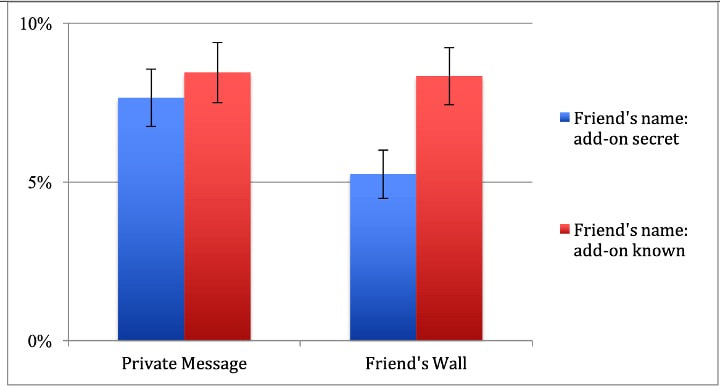Social media
Project descriptions, links to papers and presentation slides
Facebook makes people depressed
Social media permeates many aspects of our lives, including how we connect with others, where we get our news and how we spend our time. Yet, we know little about the economic effects for users. In 2017, we ran a large field experiment with over 1765 individuals to document the value of Facebook to users and its causal effect on news, well-being and daily activities. Participants reveal how much they value one week of Facebook usage and are then randomly assigned to a validated Facebook restriction or normal use. One week of Facebook is worth $67. Those who are off Facebook for one week reduce news consumption, are less likely to recognize politically-skewed news stories, report being less depressed and engage in healthier activities. These results are strongest for men. Our results further suggest that, after the restriction, Facebook’s value increases, consistent with information loss or that using Facebook may be addictive.
Link to paper Mosquera, Roberto, Mofioluwasademi Odunowo, Trent McNamara, Xiongfei Guo and Ragan Petrie, 2020, “The Economic Effects of Facebook,” Experimental Economics, 23(2), 575-602. |


